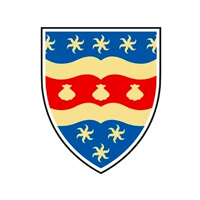fees waived
Zoology, BSc (Hons), with industry placement
University of Plymouth, United Kingdom
Ranking in UK
Animal Science
Costs
food & rent S$17.1K / year
Entry requirements
Scholarships
Unlimited quantity
Unlimited quantity
Unlimited quantity
Limited quantity
Information
Code
Code
Intakes
Website (External)
Programmes
Information
Duration
2029
Zoology, the scientific study of animals, explores their biology across terrestrial, marine, and freshwater environments. This course builds a comprehensive understanding of animal ecology, evolution, and key laboratory skills in behaviour, molecular biology, physiology, and cellular biology. Students gain theoretical foundations in ecology, anatomy, behaviour, evolution, and genetics, while developing practical expertise through field studies, self-directed learning via university resources, and potential placement years to enhance employability.In the first year, core skills in evolution, behaviour, physiology, and ecology are established through lectures, labs, and field trips. The second year advances knowledge in animal behaviour, comparative zoology, and ecophysiology, with options in conservation or marine biology. The final year features an in-depth research project, alongside modules like behavioural ecology and global change biology. Strong links with organizations such as the Wildlife Trusts support career development, though the course does not award Qualified Teacher Status.
Year 1 In your first year, you'll learn the core skills and fundamental science required to be able to study zoology. Study evolution, behaviour, physiology, microbiology and ecology, whilst developing your skills in experimental design and interpretation. Understand the importance of statistical analyses in scientific studies. You'll gain these skills through a mix of lectures, tutorials and laboratory practicals. You'll also have the possibility to undertake a field trip to Slapton Ley in South Devon or an alternative to study the ecology and behaviour of organisms in the wild. Year 2 You will develop a deeper understanding of animal behaviour, comparative zoology, ecophysiology, phylogeny and scientific investigation skills. You will also tailor your skills for the workplace, by specialising in optional modules in conservation biology or the biology of marine organisms. A field course will allow you to put skills and knowledge gained in the lectures to use, developing your practical and transferable skills. Optional placement year Final year Your personal research project forms a major part of your final year. Alongside this, you’ll build on advanced skills and concepts in biological disciplines as well as considering speciation and the diversity of life. You’ll select modules from a range of options including behavioural ecology, global change biology, conservation physiology, fish and fisheries and animal welfare which will allow you to tailor your studies and prepare you as a zoologist ready to move onto the workplace or further study. The modules shown for this course or programme are those being studied by current students, or expected new modules. Modules are subject to change depending on year of entry and up to date information can be found on our website.
A local representative of University of Plymouth in Singapore is available online to assist you with enquiries about this course.

